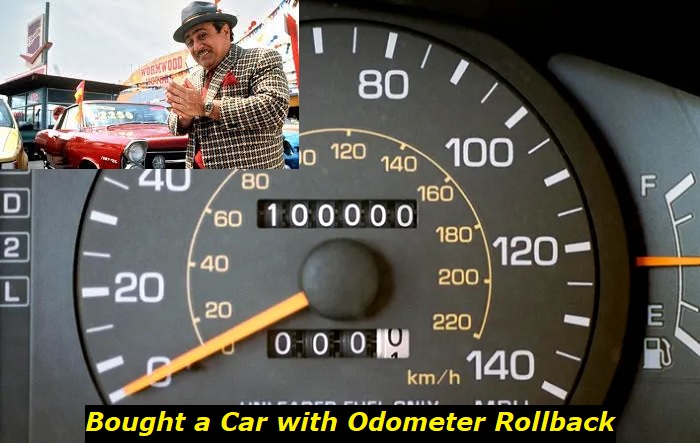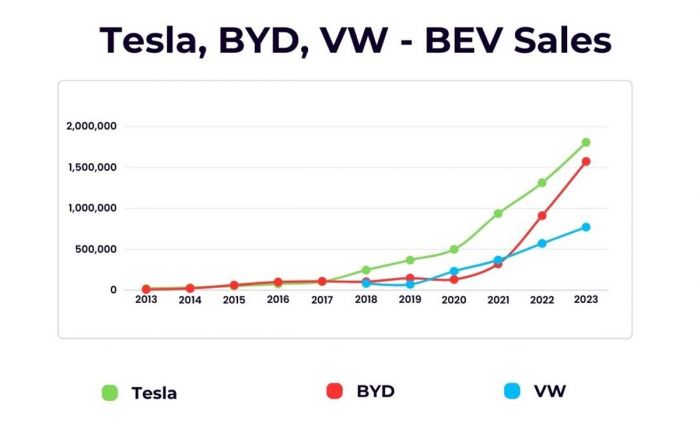While odometer rollbacks are not that common nowadays, they are still possible and you should watch out when buying a used car. Especially, if you buy it from a complete stranger who is a private seller, not even a dealer. Odometer rollbacks may be extremely dangerous because they disturb the normal maintenance of the car and change your expectations of the lifespan of the vehicle.
In short, if a private seller sold you a car with an odometer rollback, you should immediately report it to the police and contact the local DMV for legal support. Also, you may want to speak to a lawyer as to your options on what to do next.

But your actual results of all these activities may depend on so many factors. Today, I want to tell you more about such situations, what you can do with them, and how you can avoid such problems when buying a used car.
Let's get started!
What to do immediately after you find out about odometer rollback?
First of all, you should know that odometer rollbacks are illegal. Most likely, the person who did this was not a legal citizen of the US because I can't imagine an American who would risk their records just because of a couple hundred bucks of additional price for a used car.
Anyway, as the action is illegal, you can get some help from government bodies. Here's what exactly you need to do:
- gather evidence that your car had odometer rollback and it wasn't made by you;
- find all documents you have for this car including any purchase papers;
- call the police and report the issue, they may tell you what to do next or just file the application;
- go to the local DMV office and report the issue there - they will also give you some advice on what should be next;
- find a lawyer who has experience in car issues and ask the lawyer to clear your options;
- after that, you will just need to wait for the legal bodies to give their solutions;
- if your case is strong enough, you may go to court and have compensation up to the full price of the car you bought;
- but if the case is weak, your lawyer will not recommend going to court as this will only make you spend some time.
Also, you should know that the law may say different things about such cases from one state to another, so talking to a good lawyer should be your priority. Anyway, if you file an application to the police and DMV, this will not do anything bad in any state.
But, in this situation, I can see at least several weak points that could ruin the case and not allow you to get any compensation. You have to understand that you need to prove that someone is guilty before the court will order him or her to pay compensation to you. Just accusing the person of doing something will not work - you need strong evidence.
What may be your evidence of the odometer rollback?
First of all, how did you know about the rollback? Did your mechanic just tell you that they suspected that the vehicle's mileage was much higher? Did you find out that the ECU shows larger mileage than the dash screen when you were using the OBD2 scanner? Did you use a Carfax or any other report service to find out that 4 years ago the mileage of your vehicle was 30K miles more than now?
It all matters because, in the majority of the situations, it will be extremely hard to prove that the private seller of the car is guilty and has to pay compensation to you.
Here are the weak points that a seller's lawyer may use in court:
- you could change the mileage by yourself and now accuse the seller to get the money;
- the mileage may have been changed before by some previous owner of the vehicle;
- there is a glitch in the ECU and the dash shows different mileage than the ECU;
- the mileage may have been changed by mechanics during one of the repairs for some reason.
The idea is to prove that the mileage of the vehicle was changed exactly by the private seller who sold you the car. And in my view, it seems to be almost impossible. And you have to understand that the American court will not prove a person guilty until it sees unbreakable and strong evidence.
It doesn't mean that you shouldn't go to the police and DMV, and speak to the lawyer. Maybe, after you show the evidence to the private seller who sold you the vehicle, he or she will agree to pay the compensation without a court.
How do they change the mileage in cars?
Unfortunately, the market of used vehicles in the USA is not completely clean of fraud. Mileage rollbacks are one of the easiest crimes in this sphere but still, this thing is extremely unpleasant for the owner of the car.
Here's how anyone can change the mileage of the vehicle:
- most cars now have electronic odometers that are controlled by the dash or by the ECU;
- you may buy special tools and scanners that are plugged into the OBD2 port and can control those odometers;
- with the help of those instruments, you can very quickly change the odometer settings and set up any mileage;
- after that, the original mileage may still be stored in the ECU and a couple of other control modules;
- there are methods that help unfair sellers change mileage in all modules but those require more time and equipment.
As you see, it's not that hard to set a desired mileage in any vehicle and make it "younger" which means more expensive. There are cases when people bought almost dead cars, made odometer rollback and some minor body repairs to make it look better, and sold the car for much more money.
You need to always be careful and remember that private sellers may sell you a car that is not as good as it may seem.
Checking the mileage when you buy a car: here's what to do
The best thing you can do to protect yourself from a mileage rollback is to keep yourself away from buying such a vehicle. But how can you understand that the original mileage of the car was edited and now you see the "younger" version of the vehicle that is going to die soon? Well, there are several things you can do about that:
- Use the OBD2 scanner to read the mileage stored in the ECU
This may help you understand that the odometer has different mileage settings than the ECU. And this will be a clear sign of the rollback. But it's still not a very reliable way to check the vehicle because ECU settings may have been changed, too.
- Use the VIN to check the vehicle in databases
Using the VIN of the vehicle, you can check it in several free and paid databases. The most obvious is the Carfax where you can buy a report for several dollars. Also, there are some other services to choose between. In those reports, you will see all service and maintenance records in dealerships, accidents, etc. Every record will come with the mileage.
- Look at the vehicle
If the car has 100,000 miles on the dash, it should still look like new. No damaged seat upholstery, no problems with paint, the steering wheel plastic is still looking good, there is no rust in such cars. If the vehicle looks old and shabby but has up to 200K miles on it, you should suspect something and check the car better.
- Check the vehicle in a good repair shop
While you may not be an experienced car owner and mechanic, the person from the repair shop will obviously help you immediately understand all the problems that your potential vehicle has. Car mechanics will provide the car with a thorough inspection and if they notice any suspicious things with the mileage, they will immediately tell you about that.
- Look at maintenance documents
If the car was maintained in a good repair shop, it will have a pack of documents. Look at the most recent ones and see if it has a mileage that is close to the current odometer readings. Also, look at the date of the last report from the repair shop. If 4 years ago your vehicle had 110,000 miles and now it has 115,000 miles, this is highly suspicious and has to have a certain explanation.
Final thoughts
If you ever get into a situation where you discover that the odometer readings were changed by the previous owner of the vehicle, don't hesitate to ask for legal support and go to the police and to the DMV. But make sure you have strong evidence before you go to court. Otherwise, you will just lose your time. In many cases, this will just be an expensive lesson that you will have to learn.
About the authors
The CarAraC research team is composed of seasoned auto mechanics and automotive industry professionals, including individuals with advanced degrees and certifications in their field. Our team members boast prestigious credentials, reflecting their extensive knowledge and skills. These qualifications include: IMI: Institute of the Motor Industry, ASE-Certified Master Automobile Technicians; Coventry University, Graduate of MA in Automotive Journalism; Politecnico di Torino, Italy, MS Automotive Engineering; Ss. Cyril and Methodius University in Skopje, Mechanical University in Skopje; TOC Automotive College; DHA Suffa University, Department of Mechanical Engineering






Add comment